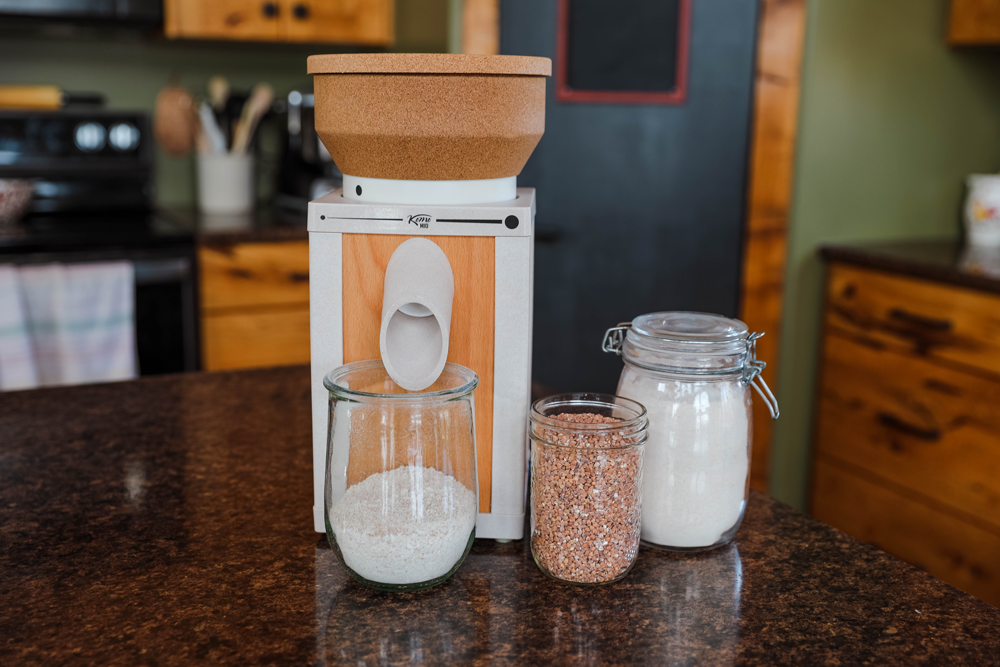
Cork Hoppers; Everything you need to know
If you've come across the KomoMio Eco or the KomoMio Eco Plus, you might be curious about the cork hopper and how it stacks up against the wooden one. You're definitely not alone in your questions, and we're here to share some insights to help you understand the differences.
KoMo proudly launched the cork hopper with their KomoMio Eco (250 watt) model, in February 2023 and has been using them effectively in Europe for the last few years without issue or concern regarding longevity. Only recently have we brought them into Canada, along with the KomoMio Eco PLUS (360 watt) model, and the response so far has been incredible! If you're curious about the difference between the two models outside of the cork hopper? Check out this blog post that goes into more detail - the KomoMio Eco Plus was made exclusively for us in Canada!
I digress.
The cork hopper is designed with an emphasis on eco-friendliness and sustainability. Made from the bark of the cork oak tree, cork can be harvested without harming the tree, allowing it to continue thriving. In contrast, beechwood, while undeniably beautiful, necessitates the cutting down of the entire tree for use. This fundamental difference in sourcing materials has a significant impact on the environment, which is reflected in the pricing of the two options.
It's true, cork is naturally a softer material than hard beechwood, but these cork hoppers are not the thin cork tackboards we see at the dollar stores. The video below is a great visual demonstrating the strength of this design.
KoMo has undergone rigorous testing to ensure the cork's durability with regular use according to the provided guidelines. It's even included in the 12-year warranty, which means if it fails within that timeframe under proper conditions, you can get a replacement. And, if down the road, you decide that the cork hopper isn't the right fit for you, rest assured that a wooden hopper is also available for purchase.
As far as maintaining your cork hopper? There are in fact, no special cleaning requirements. Cork is in itself, a naturally self-cleaning material. It is antimicrobial, containing compounds that kill bacteria and fungus. It is anti-static, repelling dust and hair particles that may be in your home. It is hypoallergenic as well as mold and mildew resistant. Simply wiping it down periodically with a damp rag is more than enough to clean it properly. Just be sure to avoid soaking it, as excessive moisture can lead to potential issues.
The beauty of choosing between the cork and wooden hoppers lies in the freedom it gives each individual to prioritize what matters most to them. Whether you lean towards the eco-friendly cork option or the classic charm of wood, your decision reflects a commitment to sustainability and responsible living. By selecting the mill model that aligns with your values, you contribute to a more environmentally aware future, one choice at a time.
